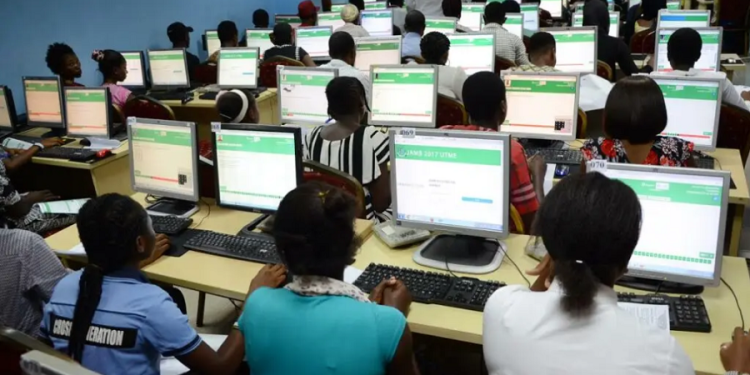The Joint Admissions and Matriculation Board (JAMB) has released the 2025 Unified Tertiary Matriculation Examination (UTME) results, sparking concern as official data shows over 1.5 million candidates scored below 200 out of 400 marks.
This alarming statistic shows that 75% of the 1,955,069 candidates who sat for the 2025 UTME exam scored below the 200 required to gain admission by most universities across the country.
The data has escalated concerns about potential challenges in Nigeria’s educational system, with many raising questions about candidate preparedness and examination standards.
According to JAMB’s statistical analysis, only 420,415 candidates who sat for the 2025 UTME exams achieved scores above 200, with 12,414 students (0.63%) scoring 300 or higher.
The data further reveals that 983,187 candidates scored between 160 and 199, while over 5,800 scored below 120, including 2,031 with marks under 100.
JAMB also reported challenges during the 2025 UTME, including 97 candidates involved in examination infractions and 2,157 others under investigation for suspected malpractices.
Additionally, 71,701 candidates were absent, and biometric verification issues affected some participants, with affected candidates set to be rescheduled.
JAMB further revealed that results for blind candidates and those under the JAMB Equal Opportunity Group (JEOG) are still being processed.
In the statement accompanying the data, JAMB added: “40,247 underage candidates were permitted to demonstrate their exceptional abilities. However, only 467 of these candidates (1.16%) achieved scores that meet the threshold for exceptional ability as defined for the UTME, with their performance in the subsequent three stages still pending.”
Several Nigerians have begun to point to several factors they believe contributed to the low performance in the 2025 JAMB UTME results as the quality of secondary education in Nigeria takes a dive.
Many public schools, particularly in rural areas, lack qualified teachers, adequate learning materials, and functional facilities.
Private schools, while often better equipped, are unaffordable for many families, exacerbating educational inequality.
Another concern is the reliance on shortcuts and examination malpractice. Several individuals have lamented that the present generation prioritizes “shortcuts, drugs, and quick money” over diligent study.





